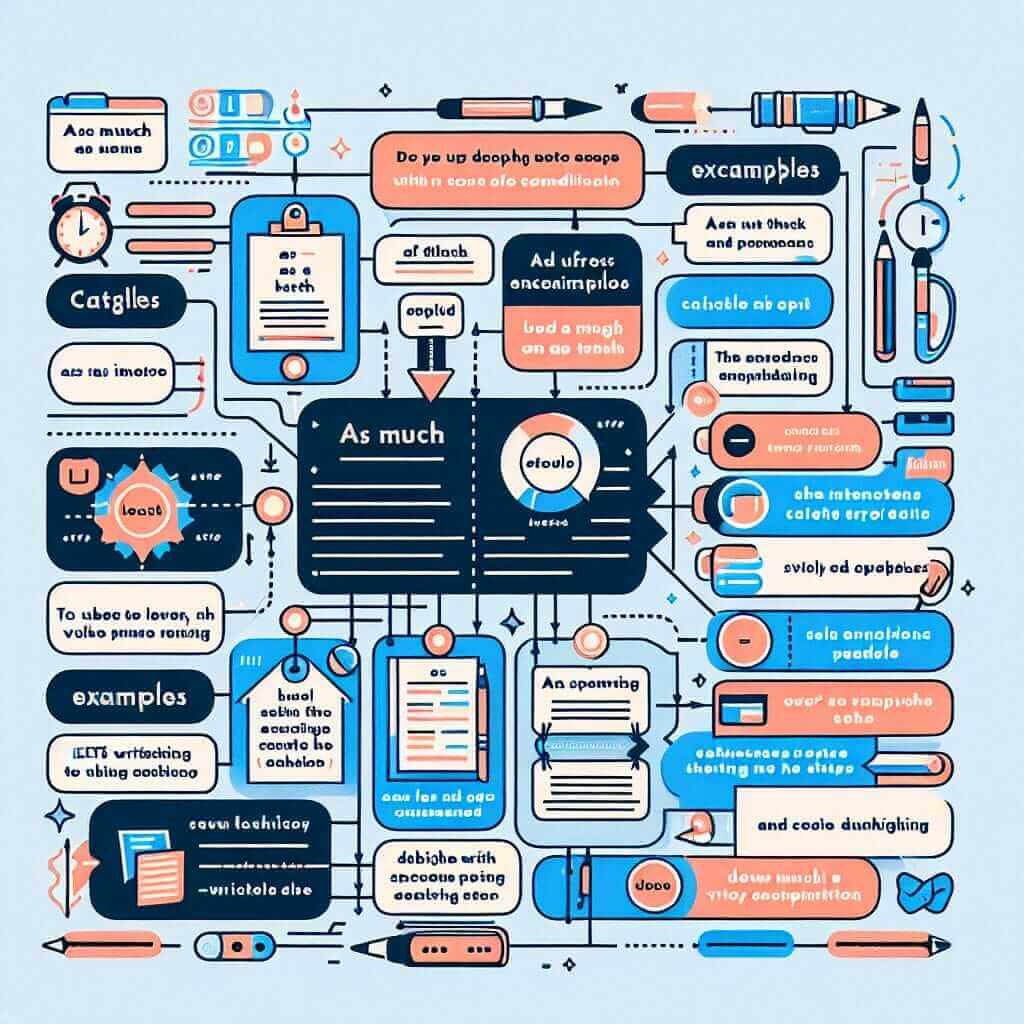The phrase “as much as” often trips up IELTS test-takers, but mastering it can significantly enhance your fluency and grammatical range, ultimately boosting your band score. While it might seem simple at first glance, “as much as” has nuances in meaning and usage that can be tricky to navigate.
Here are some examples of how “as much as” can appear in different sections of the IELTS exam:
- Listening: “The historian argued that the invention of the printing press had as much as, if not more, of an impact on society as the invention of the internet.” (This sentence highlights the comparison being made by the speaker.)
- Reading: “The study revealed that individuals who engaged in regular physical activity consumed as much as 20% more water than their sedentary counterparts.” (Here, “as much as” quantifies the difference in water consumption.)
- Writing Task 1: “Profits in the first quarter reached as much as £5 million, demonstrating a significant increase compared to the previous year.” (This example demonstrates the use of “as much as” to emphasize the substantial amount of profit.)
- Speaking: “Although I enjoy reading fiction, I find that I learn as much as, if not more from, non-fiction books.” (This statement showcases the speaker’s ability to express a nuanced comparison.)
Understanding “As Much As” in IELTS
“As much as” is a comparative structure used to express a similar or equal extent between two things. It can refer to quantity, degree, or extent, and is often used to emphasize a surprising or unexpected amount.
Grammatical Structure and Usage
“As much as” is a flexible phrase that can be used in several ways:
1. To Compare Quantities:
Formula: As much as + noun + as
- Example: “I drink as much as coffee as you do.”
- Analysis: Both subjects consume an equal amount of coffee.
2. To Compare Degrees or Extents:
Formula: As much as + clause
- Example: “As much as I love to travel, I also enjoy staying at home.”
- Analysis: This conveys that the speaker enjoys both activities to a similar extent, despite them being contrasting.
3. To Indicate a Large Amount (Often Surprising):
Formula: As much as + quantity
- Example: “The renovation cost us as much as $50,000!”
- Analysis: The speaker emphasizes the unexpectedly high cost of the renovation.

Applying “As Much As” for a Higher Band Score
To effectively demonstrate your grasp of “as much as,” consider these tips:
- Vary your sentence structures. Use “as much as” in different positions within a sentence to show flexibility and range.
- Combine “as much as” with other comparative structures. For instance, “While I enjoy city life, I appreciate the peace of the countryside just as much as, if not more than, the hustle and bustle of urban areas.”
- Use “as much as” to add nuance to your comparisons. Instead of simply stating equality, use it to emphasize an unexpected amount or degree.
Common Errors to Avoid
- Incorrect word order: Ensure that the structure follows the correct formula: “as much as + noun + as” or “as much as + clause.”
- Omitting “as” after the noun: Remember that the second “as” is essential when comparing quantities.
- Using “as much as” for uncountable nouns: In this case, use “as much” without the second “as.” For example, “I don’t have as much time as I used to.”
Conclusion
Mastering “as much as” can significantly elevate your grammatical range and fluency in the IELTS exam. By understanding its various uses, practicing its application, and avoiding common pitfalls, you can confidently incorporate this versatile phrase into your speaking and writing, paving the way for a higher band score. For further practice with quantifiers, consider reviewing resources on “much, many, a lot of, some, and any” as they are closely related and often used in similar contexts (see our articles on Use of quantifiers and When to use much, many, a lot of…). Remember, consistent effort and targeted practice are key to success in the IELTS exam.